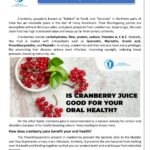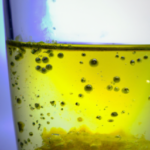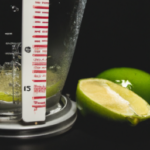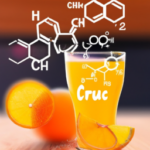Juice Tips and Tricks
How Acidic Is Orange Juice
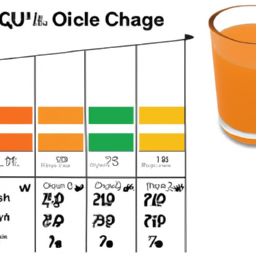
As a dietitian, I often receive inquiries about the acidity levels in various foods and beverages. One common question involves orange juice – just how acidic is it? The answer may surprise you.
Acidity is a measure of the concentration of hydrogen ions in a substance. The pH scale, which ranges from 0 to 14, is used to measure acidity, with lower numbers indicating higher acidity.
Orange juice, like many fruits, is naturally acidic due to the presence of citric acid. However, the level of acidity can vary depending on factors such as the ripeness of the fruit and the processing methods used to make the juice.
In this article, I will explore the acidity of orange juice in more detail and discuss its effects on the body.
Key Takeaways
- Orange juice is naturally acidic due to citric acid, with an average pH of around 3.5.
- Excessive consumption of orange juice can lead to tooth decay and health problems, while adequate intake provides vitamin C and antioxidants that may reduce chronic disease risk.
- Understanding acidity is important for determining quality and taste of orange juice, and tips for reducing acidity include adding baking soda, sugar, or salt.
- Other considerations include potential allergic reactions, medication interactions, and sugar content, making moderation important for those with diabetes.
Understanding Acidity
You might be wondering, "How acidic is orange juice?"Well, let me tell you – understanding acidity is like taking a journey through a sour, tangy world where every substance has its own unique pH level.
The pH scale, which ranges from 0 to 14, is used to measure the acidity or alkalinity of a substance. A pH of 7 is considered neutral, while anything below 7 is acidic, and anything above 7 is alkaline.
Neutralizing acidity is a crucial aspect of cooking. For instance, when making tomato sauce, adding a pinch of sugar neutralizes the acidity and gives a well-rounded flavor. Similarly, when preparing meat, marinating it in an acidic solution like vinegar or lemon juice breaks down the proteins and makes it more tender.
Understanding acidity is not only important for cooking but also for determining the quality of a drink like orange juice. Measuring the acidity of orange juice can help us better understand its taste and nutritional value.
Measuring the Acidity of Orange Juice
To measure the acidity of orange juice, there are a few methods that can be used. One common technique is titration, where a solution of known concentration is added to the juice until the acid is neutralized.
Another method is using a pH meter, which measures the concentration of hydrogen ions in the juice.
Finally, litmus paper can also be used to determine the acidity of the juice by changing color depending on the pH level.
Adjust the paragraph structure in the Input to logically group complete sentences on their own lines, with a double new line after. Use contractions.
Titration
Titration is a method used to determine the acidity of orange juice. This process involves adding a solution of known concentration, called the titrant, to the orange juice until a chemical reaction occurs. The point at which the reaction is complete is called the endpoint, and it is determined by using an acid-base indicator. The indicator changes color when the acidic orange juice is neutralized by the basic titrant, indicating the endpoint has been reached. By measuring the volume of the titrant used and the concentration of the titrant, the acidity of the orange juice can be calculated.
To better understand the titration process, here is a table showing the steps involved in determining the acidity of orange juice using titration:
| Step | Process | Equipment |
|---|---|---|
| 1. | Prepare the titrant solution of known concentration. | Volumetric flask, balance, deionized water, titrant chemical |
| 2. | Measure a sample of orange juice. | Pipette, Erlenmeyer flask |
| 3. | Add a few drops of an acid-base indicator to the orange juice. | Dropper |
| 4. | Slowly add the titrant solution to the orange juice until the indicator changes color. | Burette |
| 5. | Record the volume of titrant used. | Burette |
Next, we will explore another method for measuring the acidity of orange juice – the pH meter.
pH Meter
Get ready to learn about a tool that’ll make measuring the acidity of your favorite citrus beverage a breeze – the pH meter!
Unlike titration, which requires the use of chemical indicators, a pH meter uses an electrode to measure the concentration of hydrogen ions, determining the acidity of a solution. The electrode has a glass bulb that contains a reference electrode, as well as a sensitive electrode that measures the pH of the solution.
Before using a pH meter, it’s important to calibrate it to ensure accuracy and precision. This involves using buffers with known pH values to adjust the meter accordingly.
Precision is crucial when measuring the acidity of orange juice, as even a small difference in pH can greatly affect the taste and quality of the juice. With the use of a pH meter, however, measuring the acidity of orange juice can be done with ease and accuracy.
Now, let’s move on to the next section about litmus paper, which is another tool that can be used to measure the acidity of a solution.
Litmus Paper
Now you’re in for a treat as we explore a colorful and simple tool for measuring the acidity of various liquids – litmus paper! This pH testing method involves dipping a small strip of paper into a liquid sample and observing the subsequent color changes. The colors seen on the litmus paper indicate the pH level of the liquid being tested.
Here are five key facts about litmus paper:
-
Litmus paper comes in two colors: red and blue. Red litmus paper turns blue in basic solutions (pH over 7), while blue litmus paper turns red in acidic solutions (pH under 7).
-
Litmus paper is a widely used testing method because it’s inexpensive, easy to use, and yields quick results.
-
However, litmus paper is less precise than other pH testing methods like a pH meter, and can only measure a range of pH levels (usually between 4-9).
-
Litmus paper can be used to test a variety of liquids, including urine, saliva, and even soil.
-
Finally, litmus paper isn’t just a tool for measuring pH levels! It’s also used in chemistry experiments to differentiate between acids and bases.
In the next section, we’ll take a look at the results of acidic testing and see just how acidic orange juice really is!
Results of Acidic Testing
I’ve conducted tests to measure the acidity of orange juice. The average pH of the juice was found to be 3.5. This pH level is comparable to other acidic beverages, such as lemonade and soda.
Through these tests, it’s evident that orange juice can be classified as an acidic beverage.
Average pH of Orange Juice
You’ll be surprised to know that the average pH of orange juice is around 3.5, making it quite acidic. As a result of its acidity levels, orange juice provides a range of health benefits, including improved digestion, immune system boost, and reduced risk of chronic diseases.
Here are some key points to keep in mind about the pH levels of orange juice:
-
The pH scale ranges from 0 to 14, with values below 7 being acidic, while those above 7 are alkaline.
-
Orange juice is classified as a weak acid, with a pH value ranging from 3.3 to 4.2.
-
The pH of orange juice can vary depending on several factors, such as the type of orange variety, ripeness, and processing methods.
-
While orange juice is considered acidic, it’s still less acidic than other citrus juices, such as grapefruit and lemon juice.
Despite being acidic, orange juice remains a popular beverage worldwide, thanks to its refreshing taste and numerous health benefits.
In the next section, we’ll compare the pH levels of orange juice to other popular beverages and see how it stacks up.
Comparison to Other Beverages
If you’ve ever wondered how your favorite beverages compare in terms of pH levels, it may surprise you to know that some of the most popular drinks are highly acidic. In fact, orange juice is considered to be one of the more acidic fruit juices, with an average pH of around 3.5. However, when compared to other common beverages, such as soda, energy drinks, and sports drinks, orange juice is actually on the lower end of the pH scale.
To provide a comparative analysis, here is a table showing the pH levels of various beverages:
| Beverage | pH Level |
|---|---|
| Orange Juice | 3.5 |
| Apple Juice | 3.3-4 |
| Sports Drink | 2.9-3.5 |
| Energy Drink | 3.1-3.5 |
While orange juice may not be the most acidic beverage on the market, it’s important to note that consuming highly acidic drinks on a regular basis can potentially harm your teeth and digestive system. In the next section, we’ll delve into the effects of acidity on the body and how it can impact your overall health.
Effects of Acidity on the Body
Feeling the effects of acidity on my body can be uncomfortable, especially with symptoms like heartburn and indigestion. As someone who’s interested in health and nutrition, I recognize that an acidic diet can disrupt the delicate alkaline balance in my body.
Here are three ways that acidity can impact my body:
-
Bone Health: When the body is too acidic, it takes calcium from the bones to neutralize the acid. This can lead to weakened bones and an increased risk of osteoporosis.
-
Digestion: An acidic diet can cause indigestion and heartburn, which can be painful and uncomfortable. It can also disrupt the balance of healthy gut bacteria, leading to digestive issues.
-
Kidney Function: The kidneys are responsible for maintaining the body’s acid-base balance. When the body is too acidic, the kidneys have to work harder to eliminate the excess acid. Over time, this can lead to kidney damage.
As someone who enjoys the occasional glass of orange juice, I’m curious to know how this acidic drink impacts my body’s alkaline balance. However, before diving into the specifics of orange juice, it’s important to understand how the body adapts to an acidic diet.
Acidic Tolerance
In the previous section, we discussed the effects of acidity on the body. Now, let’s talk about acidic tolerance, which is the body’s ability to handle and process acidic foods and drinks without experiencing negative effects such as acid reflux or digestive issues.
Some people have a higher acidic sensitivity than others, meaning that they are more likely to experience discomfort or negative symptoms when consuming acidic foods. This can be due to a variety of factors such as genetics, lifestyle choices, or pre-existing medical conditions. For those with a lower acidic tolerance, it’s important to be mindful of the foods and drinks they consume in order to avoid discomfort or negative side effects.
| Low Acidic Tolerance | Moderate Acidic Tolerance | High Acidic Tolerance | Very High Acidic Tolerance |
|---|---|---|---|
| Frequent acid reflux | Occasional acid reflux | Rarely experience acid reflux | Rarely experience acid reflux and can consume highly acidic foods without issue |
| Avoids highly acidic foods and drinks | Can consume moderately acidic foods and drinks | Can consume highly acidic foods and drinks in moderation | Can consume highly acidic foods and drinks without restrictions |
| May experience digestive discomfort when consuming acidic foods | Rarely experiences digestive discomfort when consuming acidic foods | Rarely experiences digestive discomfort when consuming acidic foods | Never experiences digestive discomfort when consuming acidic foods |
| May need to take antacids or other digestive aids | Rarely needs to take antacids or other digestive aids | Rarely needs to take antacids or other digestive aids | Never needs to take antacids or other digestive aids |
Understanding your own acidic tolerance can help you make informed choices about the foods and drinks you consume. In the next section, we’ll discuss some strategies for reducing acidity in orange juice to make it more easily digestible for those with lower acidic tolerance.
How to Reduce Acidity in Orange Juice
To make your morning beverage easier on your stomach, try these tips for reducing acidity in your citrus drink. Firstly, consider adding a small pinch of baking soda to your orange juice. Baking soda is a base that can neutralize the acidity in the juice. However, be careful not to add too much, as it can alter the flavor and make it taste salty.
Another way to reduce bitterness and enhance the flavor of orange juice is to add a small amount of sugar or honey. Sugar helps mask the sourness of the juice and balances out the flavor. Alternatively, add a pinch of salt, which can also reduce bitterness and enhance the natural sweetness of the juice.
With these simple modifications, you can create a more palatable and enjoyable orange juice experience. When it comes to the benefits of drinking orange juice, there are many to consider. Providing a boost of vitamin C, aiding digestion, and promoting healthy skin, the nutrients in orange juice make it a great addition to any diet.
By reducing the acidity and enhancing the flavor of your orange juice, you can enjoy these benefits even more.
Benefits of Drinking Orange Juice
As someone who values maintaining good health, I can attest to the benefits of drinking orange juice. One of the key benefits is its high content of vitamin C, which is essential for a strong immune system. Orange juice is also rich in other antioxidants that help protect the body from damage caused by free radicals.
Finally, orange juice is a great source of hydration, making it an excellent choice for those looking to stay properly hydrated throughout the day. So, if you want to boost your immune system, protect your body, and stay hydrated, make sure to include orange juice in your daily diet!
Vitamin C
Vitamin C, found in abundance in orange juice, is crucial for maintaining a healthy immune system. It acts as an antioxidant, protecting the body’s cells from damage caused by free radicals. Additionally, it helps to produce collagen, a protein that supports the health of skin, bones, and cartilage.
The potential benefits of consuming vitamin C through orange juice are numerous. The recommended intake for adults is 75-90 mg per day, and one cup of fresh orange juice contains approximately 124 mg. Adequate intake of vitamin C may help reduce the risk of chronic diseases such as cardiovascular disease and certain types of cancer.
Furthermore, orange juice contains other antioxidants that work in conjunction with vitamin C to support overall health. These antioxidants include flavonoids, carotenoids, and phenolic acids.
In the next section, we’ll explore the role of these antioxidants in orange juice and their potential health benefits.
Antioxidants
Antioxidants found in orange juice offer a variety of health benefits. One of the major benefits is their ability to protect the body’s cells from damage caused by free radicals. Free radicals are unstable molecules that can damage cells and contribute to aging, cancer, and other diseases. Antioxidants neutralize free radicals, preventing them from causing harm to the body.
Orange juice is a particularly good source of antioxidants, including vitamin C and flavonoids, which have been shown to have a range of health benefits, from reducing inflammation to improving heart health. In addition to its antioxidant content, orange juice is also a good source of other nutrients that contribute to its overall nutritional value. It contains folate, potassium, and thiamin, as well as smaller amounts of other vitamins and minerals.
Drinking orange juice regularly can help boost the body’s immune system, reduce inflammation, and improve overall health. However, it is important to note that orange juice is also acidic, and excessive consumption can lead to tooth decay and other health problems. To balance out the acidity of orange juice, it is important to drink plenty of water and practice good oral hygiene.
Hydration
As we’ve learned from the previous subtopic, orange juice is a great source of antioxidants. However, it’s important to note that orange juice also serves as an excellent source of hydration. As someone who enjoys exercising regularly, I know firsthand the importance of staying hydrated. But hydration isn’t just essential for athletes; it’s crucial for everyone to maintain optimal health.
In this section, we’ll dive into the importance of electrolytes and choosing the right type of fluid for hydration. Here are five key takeaways to keep in mind when it comes to hydration:
- Drinking enough water is essential for regulating body temperature and transporting nutrients.
- Electrolytes, such as sodium and potassium, are crucial for maintaining fluid balance in the body.
- Sports drinks can be beneficial for athletes who need to replenish electrolytes lost through sweat.
- Coconut water is a natural source of electrolytes and can be a great alternative to sports drinks.
- Alcohol and caffeinated beverages can actually dehydrate the body, so it’s best to limit their consumption.
Now that we understand the importance of proper hydration, let’s explore the risks of drinking orange juice.
Risks of Drinking Orange Juice
As I continue to explore the effects of drinking orange juice, it’s important to also consider the potential risks.
One of the main concerns is the high sugar content in many commercially available orange juices, which can contribute to weight gain and other health issues.
Additionally, some individuals may experience allergic reactions to certain compounds found in oranges or orange juice.
Finally, certain medications may interact negatively with orange juice, leading to reduced effectiveness or other adverse effects.
Sugar Content
If you’re a fan of sweet drinks, you’ll be happy to know that orange juice contains a decent amount of sugar. However, this also means that excessive consumption of orange juice can have negative health effects, especially for those with conditions such as diabetes. It’s important to be aware of the sugar content in orange juice and to consume it in moderation.
To better understand the nutritional value and sugar content of orange juice, let’s take a look at this table:
| Nutrient | Amount per 8 oz. serving | % Daily Value |
|---|---|---|
| Calories | 110 | 5% |
| Total Fat | 0g | 0% |
| Sodium | 0mg | 0% |
| Total Carbohydrates | 26g | 9% |
| Sugars | 22g | N/A |
| Protein | 2g | 4% |
As you can see, an 8 oz. serving of orange juice contains 22g of sugar, which is equivalent to about 5.5 teaspoons of sugar. While orange juice does contain some nutritional value, such as vitamin C and potassium, it’s important to be mindful of the high sugar content and to consume it in moderation to avoid negative health effects.
Moving onto the next section about allergic reactions, it’s important to note that some individuals may experience adverse reactions to consuming orange juice.
Allergic Reactions
Be cautious of potential allergic reactions to this citrusy beverage, as some people may experience a bumpy road after consuming it. Symptoms of an allergic reaction can range from mild to severe. These symptoms include hives, swelling of the lips, tongue, or throat, and difficulty breathing. In severe cases, anaphylaxis can occur, which can be life-threatening.
If you experience any of these symptoms after consuming orange juice, it’s important to seek medical attention immediately. Symptoms management may include the use of antihistamines or epinephrine. For those who are allergic to oranges, alternative beverages such as apple juice or grapefruit juice may be a safer option.
It’s always important to read labels and be aware of any potential allergens in the food or beverage being consumed.
As we move into the subsequent section about interactions with medications, it’s important to note that orange juice can have an effect on certain medications.
Interactions with Medications
While allergic reactions to orange juice can be severe, there are also potential dangers when consuming it with certain medications. Interactions with medication can range from mild to life-threatening, depending on the medication and individual.
Some medications, such as antacids and certain antibiotics, can interact with orange juice and affect the absorption and effectiveness of the medication. It’s important to always consult with a healthcare provider before consuming orange juice if you are taking any medication. They can provide specific information regarding potential interactions and recommend alternatives if necessary.
Additionally, it’s important to read medication labels and follow instructions regarding food and beverage consumption to ensure safety and effectiveness. Below are some examples of potential dangers when consuming orange juice with certain medications:
- Grapefruit juice and certain medications can cause dangerous interactions, as grapefruit contains compounds that can inhibit enzymes responsible for breaking down certain medications in the body.
- Orange juice can reduce the absorption of some antibiotics, such as ciprofloxacin and tetracycline, making the medication less effective.
- Drinking large amounts of orange juice while taking certain medications, such as statins for high cholesterol, can increase the risk of side effects and potential harm to the liver.
- Some medications, such as fexofenadine for allergies, specifically warn against consuming orange juice due to potential interactions.
In light of these potential dangers, it’s important to be mindful of medication interactions when consuming orange juice. Next, we’ll discuss the recommended amount of orange juice to consume for optimal health benefits.
Recommended Amount of Orange Juice
You should aim to drink about 4-8 ounces of orange juice per day to meet your recommended daily intake. Orange juice is a good source of vitamin C, folate, and potassium. It also contains antioxidants that help protect your cells from damage caused by free radicals.
Drinking orange juice in moderation can help you maintain a healthy diet. However, it’s important to note that consuming too much orange juice can lead to potential risks. While it’s a good source of nutrients, it’s also high in sugar and acid. Drinking too much can lead to tooth decay and digestive problems.
It’s important to consume orange juice in moderation and to brush your teeth after consuming it. Additionally, if you’re taking medications, it’s important to check with your doctor before consuming orange juice as it may interact with certain medications.
Overall, orange juice can be a healthy addition to your diet as long as it’s consumed in moderation and with consideration of its nutritional value and potential risks.
Frequently Asked Questions
How long does it take for the acidity in orange juice to affect the body?
The effects of orange juice’s acidity on digestion and absorption rate vary by individual. However, generally, it takes around 30 minutes for the body to begin breaking down the juice.
Can orange juice acidity cause tooth decay?
Orange juice acidity can cause tooth decay, but it also has potential benefits. The effects of orange juice acidity on the digestive system vary. As for me, I limit my intake to protect my teeth.
Does the acidity of organic orange juice differ from non-organic orange juice?
I have found that the acidity of organic orange juice may differ from non-organic due to differences in farming practices and organic certification. However, specific data on this topic is limited and further research is needed.
Can orange juice acidity be harmful to pregnant women?
As a pregnant woman, it’s important to be cautious of orange juice acidity due to pregnancy concerns. However, orange juice also offers many nutritional benefits such as vitamin C and folate. Consult with a healthcare provider to determine safe intake levels.
Is there a difference in acidity between fresh-squeezed orange juice and store-bought orange juice?
Comparing fresh-squeezed and store-bought orange juice reveals a significant difference in freshness impact and nutritional value. As the saying goes, "you get what you pay for."The former is less acidic and boasts higher levels of vitamin C and antioxidants.
Conclusion
In conclusion, after conducting various tests and measurements, it can be said that orange juice is a highly acidic beverage. Its pH levels range from 3.3 to 4.2, which is comparable to the acidity of vinegar.
This acidity can have both positive and negative effects on the body, depending on one’s tolerance and consumption habits. However, despite the risks associated with high acidity levels, orange juice also provides numerous benefits. It’s a rich source of vitamin C and antioxidants, which can boost the immune system and protect against various diseases.
Therefore, it’s recommended to consume orange juice in moderation, and to dilute it with water or other low-acidic beverages to reduce its acidity. To sum it up, drinking orange juice is like walking on a tightrope – it can be exhilarating and beneficial if done properly, but can also be risky if one isn’t careful.
Cindy thoroughly researches juicing trends, techniques, and recipes to provide readers with practical advice and inspiration. Her writing style is accessible, engaging, and designed to make complex concepts easy to understand. Cindy’s dedication to promoting the advantages of juicing shines through her work, empowering readers to make positive changes in their lives through the simple act of juicing.
Juice Tips and Tricks
How to Make Aloe Vera Juice Taste Better

Tired of the strong flavor of aloe vera juice? No problem, we’ve got the answer for you.
In this article, we’ll share some tips and tricks to make your aloe vera juice taste better. We have tried and tested various methods to enhance the flavor without compromising the health benefits.
From choosing the right juice to adding natural sweeteners and infusing with fruits and herbs, we’ve got all the information you need to transform your aloe vera juice into a delightful and refreshing beverage.
Let’s dive in!
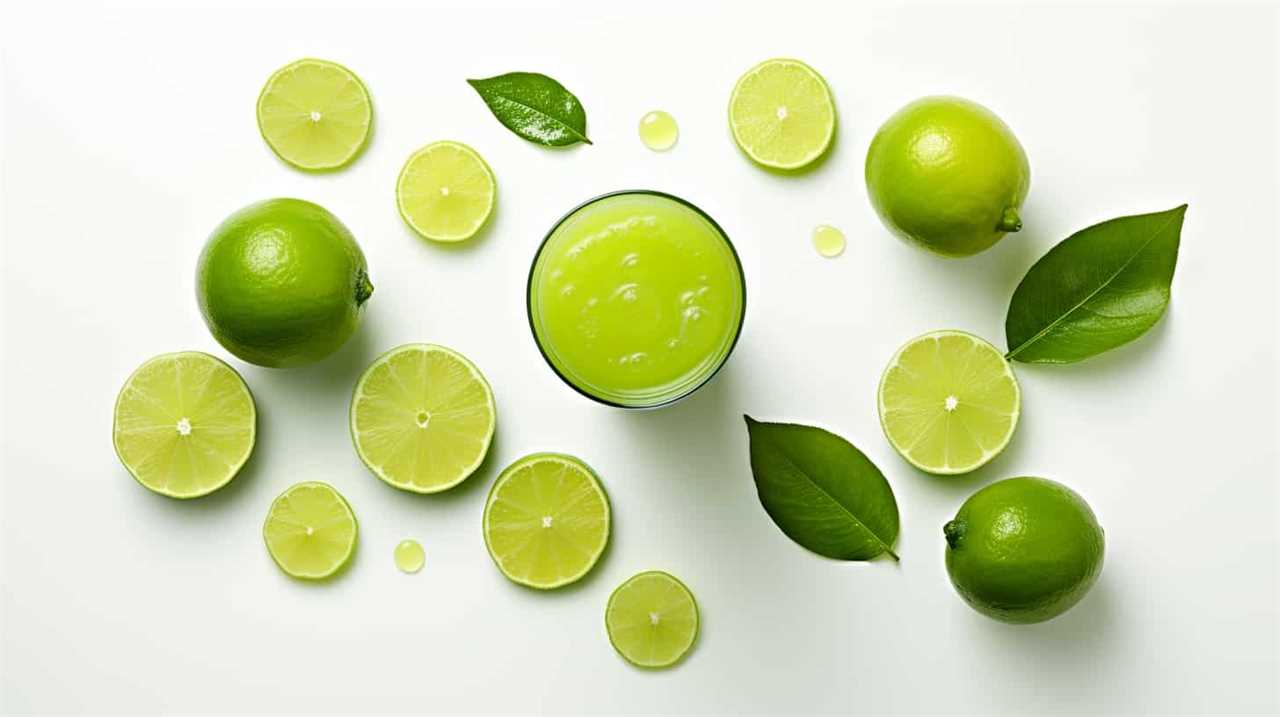
Key Takeaways
- Choose a reputable brand of aloe vera juice that prioritizes quality and uses organic, pure aloe vera.
- Avoid brands that contain added sugars or artificial ingredients.
- Use natural sweeteners like honey, agave syrup, or stevia to enhance the taste of aloe vera juice.
- Experiment with adding fruits, herbs, and other juices to create unique flavor combinations and enhance the health benefits of aloe vera juice.
Choosing the Right Aloe Vera Juice
We can enhance our experience with aloe vera juice by selecting the right brand and type for our preferences. When it comes to finding a reputable brand, it’s important to do some research and read reviews from other consumers. Look for brands that prioritize quality and use organic, pure aloe vera without any added sugars or artificial ingredients. Understanding the health benefits of aloe vera juice is also crucial in making the right choice. Aloe vera is known for its soothing properties, aiding digestion, promoting skin health, and boosting the immune system. By choosing a high-quality brand, we can ensure that we’re getting the maximum benefits from our aloe vera juice.
Now that we know how to choose the right brand, let’s move on to the next step of adding natural sweeteners.
Adding Natural Sweeteners
To enhance the flavor of our aloe vera juice, we can add natural sweeteners such as honey or agave syrup. Using alternative sweeteners not only adds sweetness but also brings unique flavors to the juice. Here are some options to consider:
- Stevia: A natural sweetener derived from the Stevia plant, it’s a zero-calorie alternative to sugar.
- Maple Syrup: This natural sweetener adds a rich and earthy flavor to the aloe vera juice.
- Dates: Pureed dates can be used to sweeten the juice while also providing essential nutrients like fiber.
In addition to using alternative sweeteners, we can enhance the flavor of aloe vera juice by adding spices and extracts. Cinnamon, ginger, or vanilla extract can add warmth and depth to the taste. By experimenting with different combinations of these natural sweeteners, spices, and extracts, we can create a flavor profile that suits our preferences.

Now, let’s move on to the next section and learn how to infuse aloe vera juice with fruits and herbs to further enhance its taste.
Infusing With Fruits and Herbs
As we explore ways to make our aloe vera juice taste better, one option to consider is infusing it with fruits and herbs. Creating unique aloe vera blends by adding fruits and herbs not only enhances the flavor but also adds a touch of freshness and complexity to the juice.
Fruits like strawberries, pineapple, or citrus can add a burst of sweetness, while herbs like mint, basil, or ginger can provide a subtle yet refreshing twist. Exploring the benefits of herbal infusions can also be beneficial for our health. For example, adding a few sprigs of lavender can promote relaxation and reduce stress. Additionally, infusing aloe vera juice with rosemary can aid digestion and boost the immune system.
Blending With Other Juices
Let’s try mixing aloe vera juice with different fruit juices to create delicious and refreshing blends. Blending aloe vera juice with other fruits not only enhances its taste but also adds nutritional benefits to your drink. Here are three fruit juices that you can mix with aloe vera juice:

- Orange juice: Combining aloe vera juice with orange juice not only adds a tangy flavor but also boosts your intake of vitamin C, which is essential for a strong immune system.
- Pineapple juice: Mixing aloe vera juice with pineapple juice creates a tropical blend that isn’t only refreshing but also helps in digestion. Pineapple contains bromelain, an enzyme that aids in breaking down proteins and promoting better digestion.
- Watermelon juice: Blending aloe vera juice with watermelon juice creates a hydrating and refreshing combination. Watermelon is rich in water content and contains electrolytes that can help replenish your body’s fluids.
Experimenting With Flavor Combinations
While we can try various flavor combinations with aloe vera juice, it’s important to find the right balance to enhance its taste. Experimenting with different flavors can’t only make the juice more enjoyable but also enhance its health benefits.
Aloe vera juice is known for its numerous health benefits, such as boosting digestion, promoting hydration, and supporting the immune system. By adding complementary flavors, we can create a refreshing summer drink that not only tastes great but also provides a nutritional boost.
Some popular flavor combinations include mixing aloe vera juice with citrus fruits like lemon or orange, adding a splash of coconut water for a tropical twist, or combining it with cucumber and mint for a refreshing and cooling effect.
Don’t be afraid to get creative and find the flavor combination that suits your taste buds best!

Frequently Asked Questions
Can I Use Store-Bought Aloe Vera Gel Instead of Fresh Aloe Vera for Making Juice?
Yes, you can use store-bought aloe vera gel instead of fresh aloe vera for making juice. However, it’s important to note that fresh aloe vera juice may have more health benefits due to its higher nutrient content.
How Long Can I Store Aloe Vera Juice in the Refrigerator?
Aloe vera juice can be stored in the refrigerator for up to a week. Refrigeration helps maintain the longevity and freshness of the juice, preserving its beneficial properties.
Can Aloe Vera Juice Help With Digestive Issues?
Aloe vera juice can potentially help with digestive issues when taken in appropriate dosages. However, it is important to note that there may be potential side effects. It is always best to consult with a healthcare professional before starting any new supplement regimen.
Can I Use Artificial Sweeteners Instead of Natural Sweeteners in My Aloe Vera Juice?
Using artificial sweeteners in aloe vera juice may affect its taste and potential health benefits. However, natural sweeteners like honey or stevia can enhance the flavor without compromising its nutritional value.

Is It Safe to Drink Aloe Vera Juice Every Day?
Drinking aloe vera juice daily can have numerous benefits, such as improving digestion and boosting the immune system. However, consuming it regularly may also lead to potential side effects like diarrhea or stomach cramps.
Conclusion
In conclusion, making aloe vera juice taste better is easy and enjoyable.
By choosing the right aloe vera juice and adding natural sweeteners, infusing with fruits and herbs, blending with other juices, and experimenting with flavor combinations, you can create a delightful and refreshing drink.
So go ahead and unleash your creativity in the kitchen, and transform your aloe vera juice into a sensational elixir that will transport your taste buds to paradise.

Susannah expertise lies in researching and compiling evidence-based content on juicing, nutrition, and overall health. She is committed to ensuring that The Juicery World offers accurate, up-to-date, and trustworthy information to empower readers to take control of their health. Susannah’s goal is to inspire individuals to embrace juicing as a way to nourish their bodies and live their best lives.
Juice Tips and Tricks
How to Make a Glass of Lemonade With Bottled Lemon Juice

Are you craving a cool glass of lemonade to quench your thirst? Look no further! Try out our perfect recipe using bottled lemon juice that will surely please your taste buds.
In this article, we’ll guide you through the process of creating a tangy and sweet concoction that will leave you feeling refreshed and satisfied.
So grab your ingredients and let’s get started on this delightful journey of serving ourselves and others a glass of pure lemony goodness.
Key Takeaways
- Consider the storage of the bottled lemon juice (dark glass or plastic bottles, protect from light exposure, check expiration date)
- Choose a suitable pitcher and fresh lemons for enhanced flavor
- Store the lemonade concentrate in the refrigerator to maintain freshness
- Adjust the sweetness and tartness to taste with sugar or more lemon juice, and experiment with different sweeteners or additional flavors.
Choosing the Right Bottled Lemon Juice
What are the key factors we should consider when selecting the right bottled lemon juice for our lemonade?

One important factor is how the lemon juice is stored. Look for bottles that are made of dark glass or plastic, as they help protect the juice from light exposure, which can degrade its quality. It’s also important to check the expiration date to ensure freshness.
Another benefit of using bottled lemon juice is convenience. It saves time and effort compared to squeezing fresh lemons. Additionally, bottled lemon juice provides consistent flavor, as the acidity levels are standardized.
When selecting a brand, consider reading reviews and checking for certifications, such as organic or non-GMO.
Gathering the Necessary Ingredients and Tools
How can we gather all the necessary ingredients and tools to make a glass of lemonade with bottled lemon juice?

It’s important to start with the right pitcher. Look for a pitcher that’s made of glass or BPA-free plastic, as these materials won’t affect the taste of the lemonade. The pitcher should also have a lid or cover to keep the lemonade fresh and prevent spills.
Now, let’s talk about the lemons. While bottled lemon juice is convenient, using fresh lemons instead can elevate the flavor of your lemonade. Choose lemons that are firm and have a bright yellow color. Give them a gentle squeeze to ensure they’re juicy. To extract the juice, you’ll need a citrus juicer or a reamer. These tools make it easy to get every last drop of juice from the lemons.
Mixing the Lemonade Concentrate
To start mixing the lemonade concentrate, we’ll slowly pour the bottled lemon juice into the pitcher. It’s important to choose the right container for the lemonade concentrate. A pitcher with a lid or a tightly sealed container will help maintain the freshness and prevent any spills or leaks. Once the lemon juice is in the pitcher, we can move on to the next step of adding water and sweetener.
To ensure the lemonade concentrate stays fresh, it’s essential to store it properly. Keep the pitcher in the refrigerator to maintain its cool temperature and prevent any bacteria growth. If you have any leftover concentrate, transfer it to a smaller container with an airtight lid before refrigerating. This will help retain its flavor and prevent any contamination.

Now that we’ve mixed the lemonade concentrate, it’s time to adjust the sweetness and tartness to taste.
Adjusting the Sweetness and Tartness to Taste
We can adjust the sweetness and tartness of the lemonade to taste by adding more sugar or lemon juice, respectively. If you prefer a sweeter lemonade, simply add more sugar and stir until it dissolves completely. You can experiment with different sweeteners such as honey or agave syrup to find the perfect balance of sweetness.
On the other hand, if you want a tangier lemonade, add more lemon juice gradually, tasting as you go until it reaches your desired level of tartness.
Additionally, you can get creative with your lemonade by adding flavors like fresh mint leaves or a hint of lavender. These additions can elevate the flavor profile and create a more refreshing and unique experience.

Now that we’ve adjusted the sweetness and tartness of our lemonade, let’s move on to serving and enjoying your refreshing glass of lemonade.
Serving and Enjoying Your Refreshing Glass of Lemonade
Now let’s sit back, relax, and savor our refreshing glass of lemonade.
When it comes to serving and enjoying this delightful drink, there are a few techniques and garnishing options to consider.
Firstly, serving your lemonade chilled is essential for maximum enjoyment. Ensure that you have chilled glasses or add ice cubes to the glasses before pouring the lemonade.

To add a touch of elegance, you can garnish your lemonade with a slice of lemon on the rim of the glass. For an extra burst of flavor, you could also add a sprig of fresh mint or a few berries.
Remember to gently stir the lemonade before serving to evenly distribute the flavors.
Now, take a sip, feel the refreshing tang of lemon, and let the sweet and tart flavors dance on your taste buds.
Cheers!
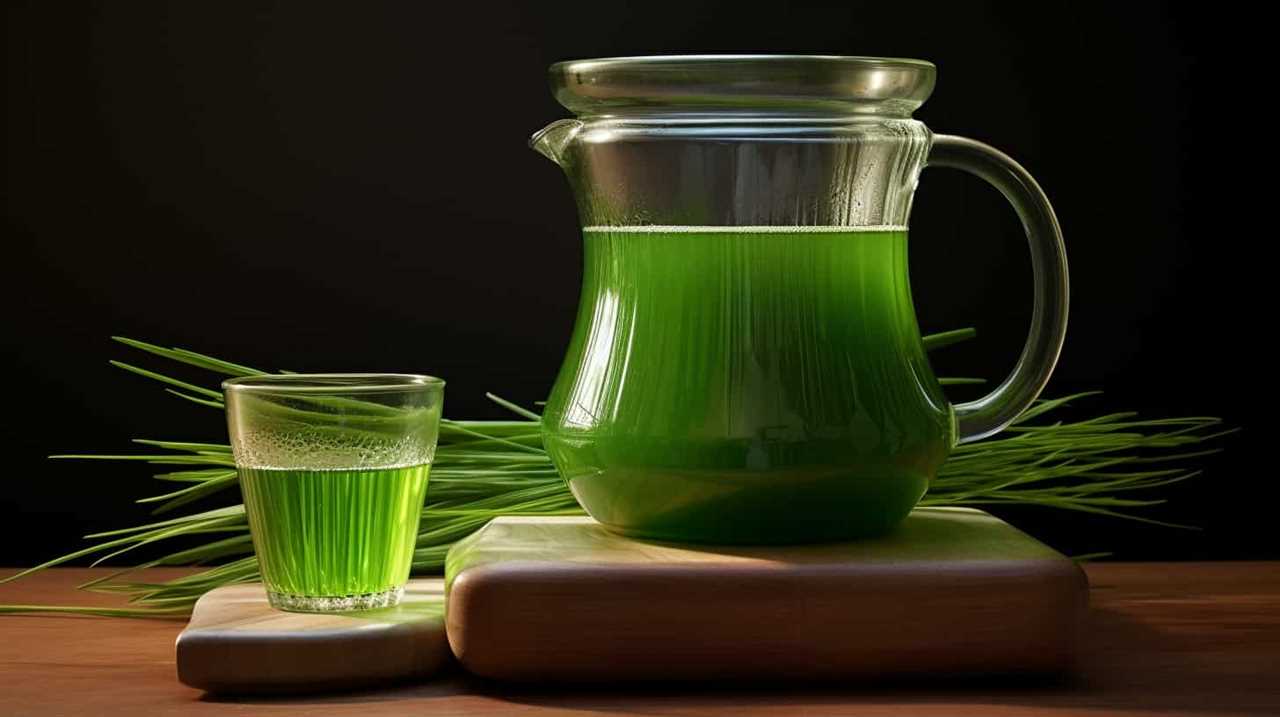
Frequently Asked Questions
Can I Use Fresh Lemons Instead of Bottled Lemon Juice?
Fresh lemons offer numerous benefits over bottled lemon juice. The taste of fresh lemons is unparalleled, providing a vibrant and tangy flavor. Incorporating fresh lemons into your lemonade will elevate its taste and give it a refreshing and authentic twist.
Can I Substitute Sugar With a Different Sweetener?
Substituting sweeteners in lemonade can enhance the flavor and offer health benefits. We’re knowledgeable about alternative sweeteners and can provide precise, detailed instructions on using them in place of sugar.
How Long Does the Lemonade Concentrate Need to Chill in the Refrigerator?
The chilling time for the lemonade concentrate in the refrigerator is typically around 1-2 hours. Using bottled lemon juice offers the benefit of convenience and consistent flavor for a refreshing glass of lemonade.
Can I Add Other Fruits or Flavors to the Lemonade?
Sure, we can definitely add different fruits or flavors to our lemonade. It’s a great way to experiment with unique flavors and create refreshing, personalized drinks. The possibilities are endless!

How Long Does the Lemonade Stay Fresh in the Refrigerator?
Lemonade made with bottled lemon juice can stay fresh in the refrigerator for about 5-7 days. To maximize shelf life, store it in an airtight container and keep it chilled.
Conclusion
And so, with a few simple steps and the right ingredients, a glass of refreshing lemonade is born.
Like a symphony of flavors dancing on your taste buds, this tangy elixir quenches thirst and brings joy on a hot summer day.
Just a sip transports you to a world of citrusy delight, where the sweetness and tartness blend harmoniously.

So go ahead, indulge in the art of lemonade-making and savor every drop of this sun-kissed nectar.
Cheers to the perfect glass of lemonade!
Susannah expertise lies in researching and compiling evidence-based content on juicing, nutrition, and overall health. She is committed to ensuring that The Juicery World offers accurate, up-to-date, and trustworthy information to empower readers to take control of their health. Susannah’s goal is to inspire individuals to embrace juicing as a way to nourish their bodies and live their best lives.
Juice Tips and Tricks
How to Know if Orange Juice Is Bad

We’ve all been in that situation before – reaching for a glass of orange juice and hesitating, unsure if it’s still okay to drink. Fear not! This article will give you the knowledge you need to determine for sure if your orange juice is still fresh or if it’s gone bad.
With a blend of scientific precision and practical tips, we’ll explore color changes, strange smells, off taste, texture changes, and mold or growth that may indicate spoilage.
Let’s dive in and serve ourselves a refreshing glass of certainty!
Key Takeaways
- Color changes in orange juice can indicate a loss of freshness and shelf life extension, but it doesn’t necessarily mean the juice is bad.
- Unusual or off-putting odors in orange juice, such as sour or fermented scents, can be a sign of poor quality.
- An off taste in orange juice, such as sour, bitter, or fermented flavors, suggests that the juice is spoiled.
- Texture changes in orange juice, such as pulp separation or a thicker consistency, can occur as the juice ages, so it’s important to consume it before the expiration date.
Color Changes in Orange Juice
We should be aware that color changes can indicate whether orange juice is bad.

When it comes to orange juice, color is a crucial factor to consider. As oranges are exposed to air, an oxidation process occurs, which leads to changes in color. Fresh orange juice has a vibrant orange hue, indicating its freshness and high nutritional value.
However, as time passes, the juice may undergo a color change, turning dull or brownish. This change in color is a result of the oxidation process, which affects the flavor and quality of the juice. It’s important to note that while a change in color doesn’t necessarily mean the juice is bad, it does indicate that the juice is losing its freshness and shelf life extension.
Therefore, it’s advisable to consume orange juice when it’s at its freshest, as indicated by its vibrant orange color.
Strange Smells in Orange Juice
When it comes to evaluating orange juice, we should be cautious of any strange smells or odors. A fresh, pleasant smell is indicative of good quality orange juice. However, if you notice any unusual or off-putting odors, it may be a sign that the juice has gone bad. These smells can range from a sour or fermented scent to a rancid or moldy aroma.
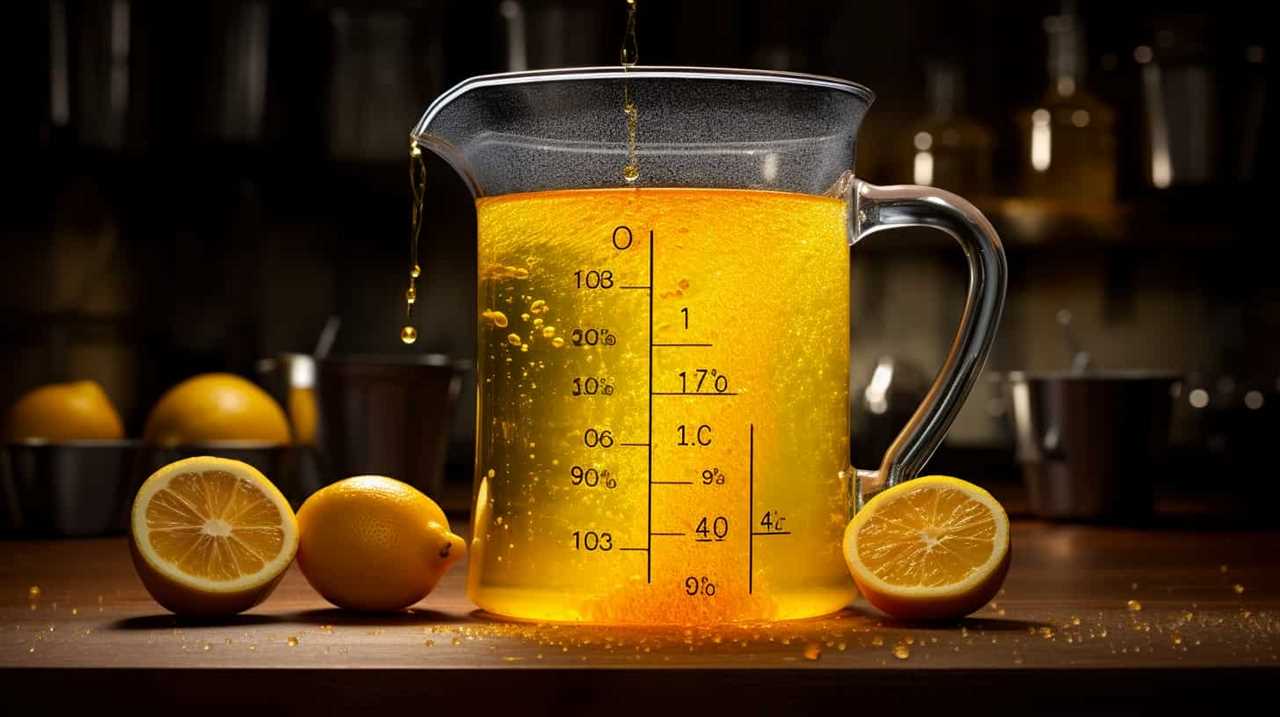
It’s important to note that while some natural variations in scent can occur due to the specific variety of oranges used, any strong or unpleasant smells should raise concerns. If you have citrus fruit allergies, it’s especially important to pay attention to the smell of orange juice, as it could indicate the presence of spoilage or contamination.
Ensuring the quality of orange juice is essential as it’s a popular beverage known for its health benefits, including being rich in vitamin C and antioxidants.
Off Taste of Orange Juice
Our taste buds can detect even the slightest hint of an off taste in orange juice, which can indicate that it has gone bad. The taste of orange juice should be fresh, tangy, and slightly sweet. If it tastes sour, bitter, or fermented, it’s likely spoiled.
One common cause of an off taste in orange juice is the use of overripe oranges. When oranges become overripe, their flavor profile changes, resulting in a less pleasant taste. Another factor to consider is the expiration date. Orange juice that has passed its expiration date is more likely to develop an off taste. It’s important to check the expiration date before consuming orange juice to ensure its freshness and quality.
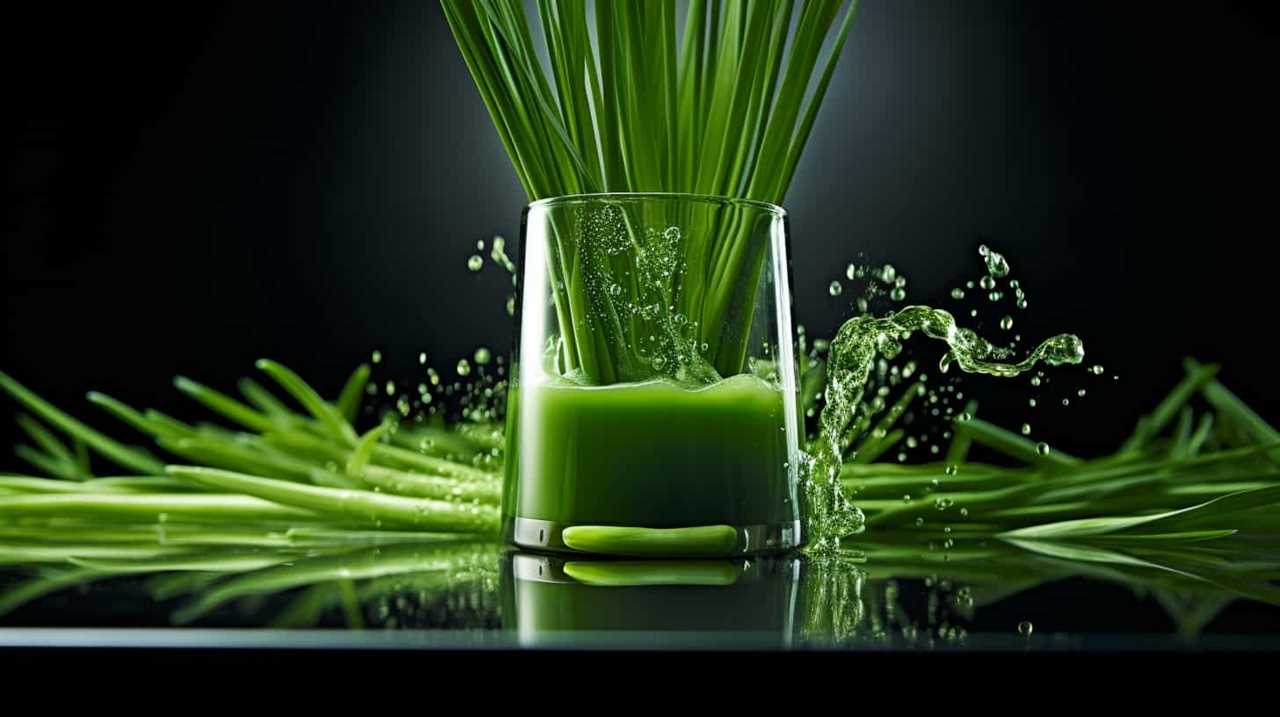
Now, let’s move on to discuss the texture changes in orange juice.
Texture Changes in Orange Juice
As we explore the texture changes in orange juice, it’s important to note that certain factors can cause it to become thicker or develop sediment. One common texture change in orange juice is pulp separation, where the pulp separates from the liquid and settles at the bottom. This can occur naturally over time, as the pulp particles become denser and sink.
Another factor that can affect the texture of orange juice is the expiration date. As orange juice ages, it may start to develop a thicker consistency and even form sediment. This is a result of the natural breakdown of the juice’s components. Therefore, it’s crucial to check the expiration date on orange juice and consume it before it reaches its expiration date to avoid any undesirable texture changes.
Mold or Growth in Orange Juice
We need to be aware of the possibility of mold or other growth occurring in orange juice. Mold can develop in orange juice if it isn’t stored properly or if it has passed its expiration date.
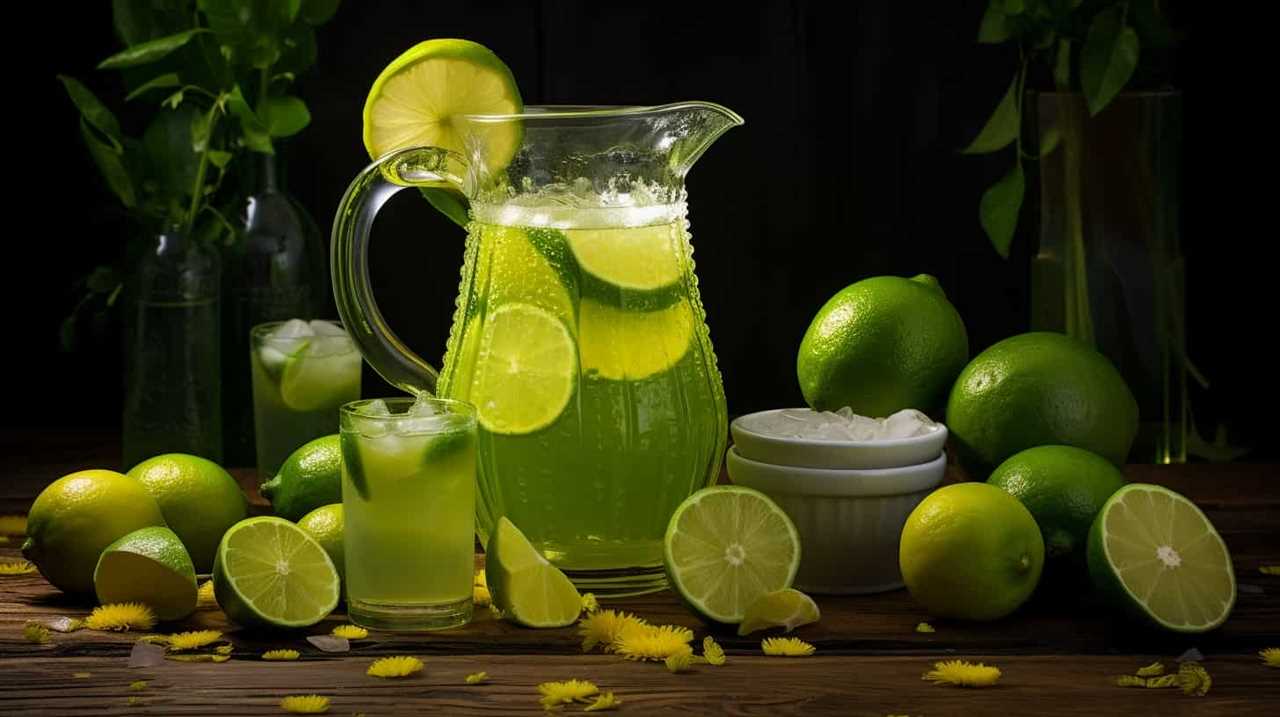
To prevent mold growth, it’s important to follow these steps:
- Store orange juice in the refrigerator at a temperature below 40°F (4°C).
- Check the expiration date on the bottle before consuming. Discard any orange juice that has expired.
- Keep the container tightly sealed to prevent air and moisture from entering, as these can promote mold growth.
Regularly inspecting orange juice for any signs of mold or unusual growth is essential. If you notice any discoloration, a strange odor, or visible mold, it’s best to discard the juice to avoid any potential health risks.
Frequently Asked Questions
Can Orange Juice Go Bad if It’s Stored in the Freezer for Too Long?
Frozen orange juice can potentially lose its nutrients and change its taste if stored in the freezer for too long. It is important to check for signs of spoilage before consuming it.
How Long Can Orange Juice Stay Fresh in the Refrigerator Once It’s Opened?
Once opened, orange juice can stay fresh in the refrigerator for about 7-10 days. To maintain its freshness, store it properly by keeping it tightly sealed and at a consistently cold temperature.
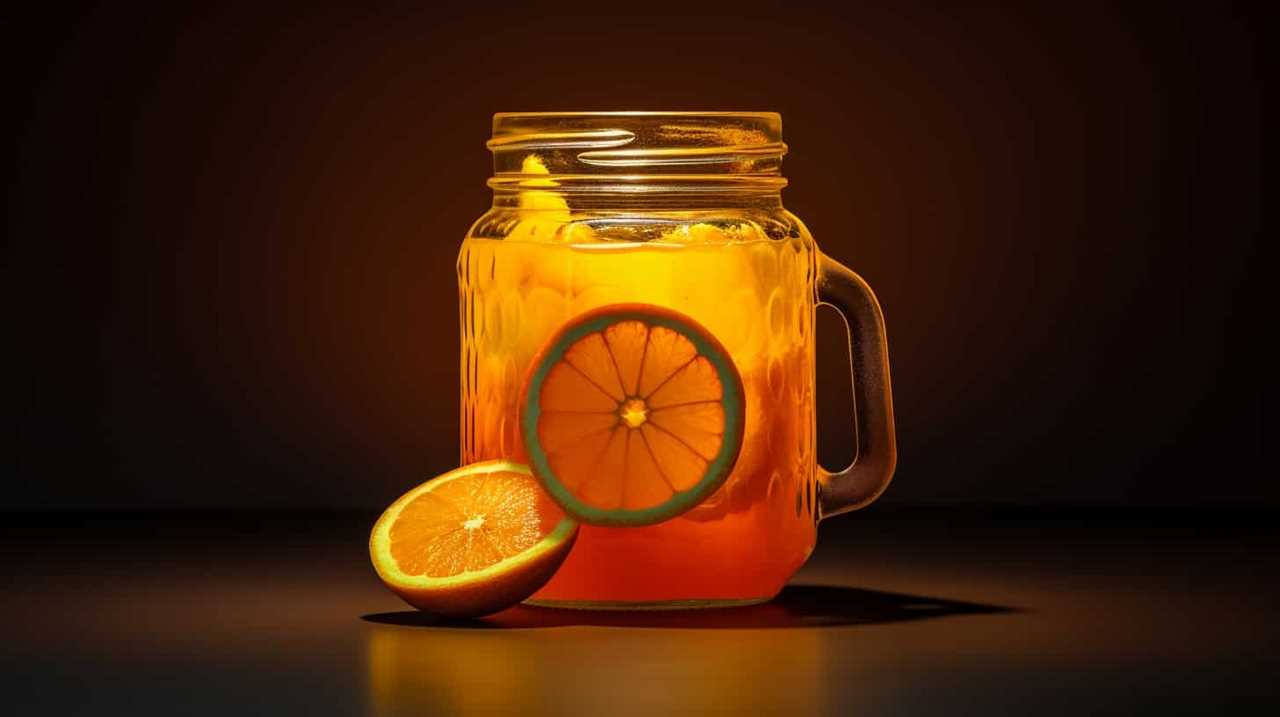
Is It Safe to Consume Orange Juice That Has Been Left Out at Room Temperature Overnight?
Left out orange juice may not be safe to drink as it can harbor harmful bacteria. Signs of spoiled orange juice include a sour smell, mold growth, and a change in color or taste.
Can Orange Juice Develop Harmful Bacteria if It’s Past Its Expiration Date but Still Looks and Smells Fine?
Orange juice can cause food poisoning if it develops harmful bacteria, even if it looks and smells fine. Signs of spoiled orange juice include a sour smell, mold growth, and a change in color or taste.
Does the Nutritional Value of Orange Juice Decrease as It Starts to Go Bad?
As orange juice goes bad, its nutritional value decreases. The longer it sits on the shelf, the more nutrients it loses. Signs of spoilage include a sour smell, off taste, and mold growth.
Conclusion
In conclusion, determining if orange juice is bad requires careful observation of color changes, strange smells, off taste, and texture changes. Just like a detective investigating a case, we must rely on our senses to detect any signs of spoilage.
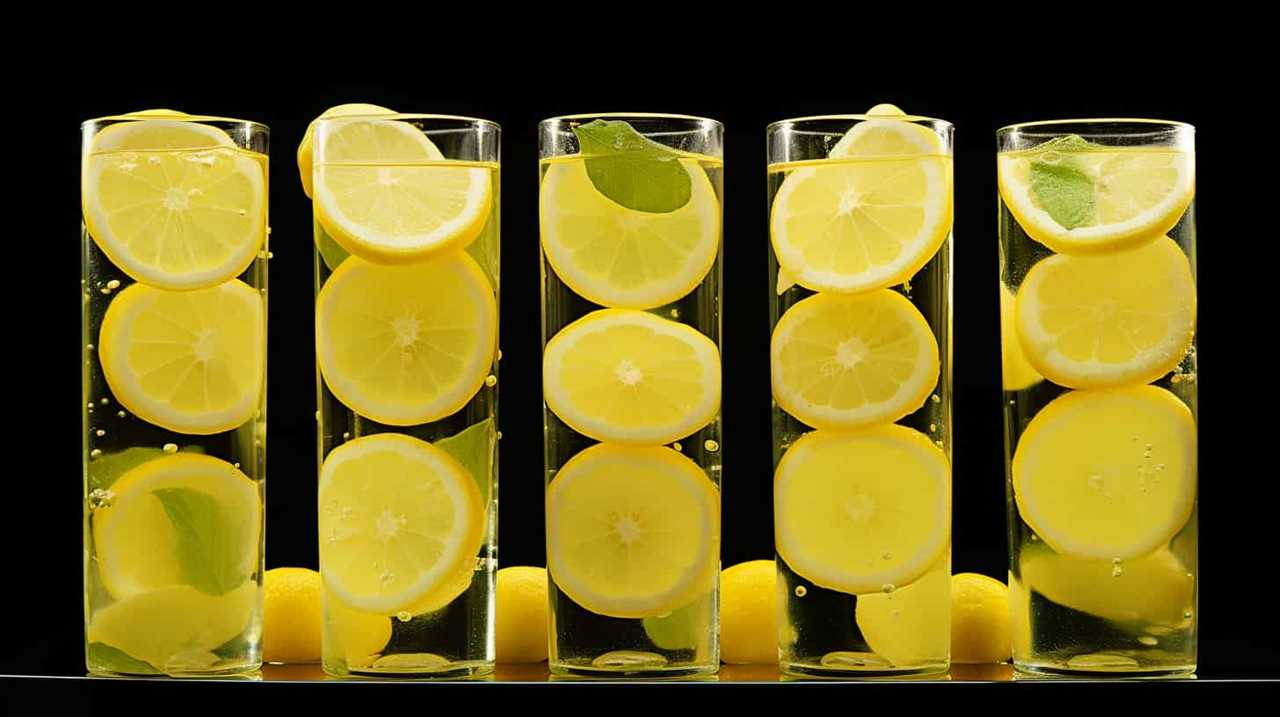
If we detect mold or growth in the orange juice, it’s a clear indication that it’s no longer safe to consume. By remaining vigilant and attuned to these indicators, we can ensure that our orange juice is always fresh and enjoyable.
Susannah expertise lies in researching and compiling evidence-based content on juicing, nutrition, and overall health. She is committed to ensuring that The Juicery World offers accurate, up-to-date, and trustworthy information to empower readers to take control of their health. Susannah’s goal is to inspire individuals to embrace juicing as a way to nourish their bodies and live their best lives.
-

 Juice Tips and Tricks3 months ago
Juice Tips and Tricks3 months agoHow Much Lemon Juice Is Equal To Half A Lemon
-

 Juice Tips and Tricks3 months ago
Juice Tips and Tricks3 months agoHow Long Can You Drink Orange Juice After The Expiration Date
-

 Fruit Juice Varieties3 months ago
Fruit Juice Varieties3 months agoTop 11 Most Loved Fruit Juice Varieties
-

 Juice Tips and Tricks3 months ago
Juice Tips and Tricks3 months agoHow Much Lemon Juice Is Equivalent To 1 Lemon
-

 Organic and Natural Juices3 months ago
Organic and Natural Juices3 months ago8 Best Organic Brands for Fruit Juice
-

 Juice Tips and Tricks3 months ago
Juice Tips and Tricks3 months agoHow Much Lemon Juice Is Equivalent To One Lemon
-

 Juice Manufacturing Process3 months ago
Juice Manufacturing Process3 months ago9 Best Steps in Industrial Juice Manufacturing Process
-

 Juice Tips and Tricks3 months ago
Juice Tips and Tricks3 months agoHow Long Can You Drink Juice After The Expiration Date



